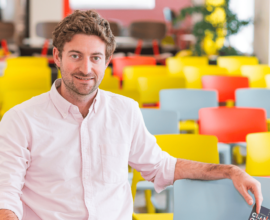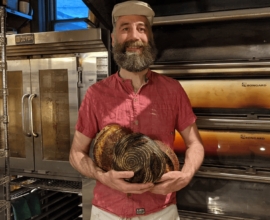Marie Françoise Marie-Nelly
The unwavering optimist
![]() Reading Time: 11 minutes
Reading Time: 11 minutes
Country Director for Southern Africa at The World Bank
Marie Françoise Marie-Nelly’s life is showered with a series of events that, in hindsight, could be good premonitions. At her boarding school for girls, she used to stand on the balcony admiring the sunset over the bay of Fort de France in her native Martinique. She longed to know where the cruise ships were heading and dreamt of faraway destinations. Later, she crossed the Atlantic Ocean for her post-high school preparatory classes at Lycée Clémenceau in Nantes, France. On her first day, she noticed a memorial plaque inscribed with the following words by the French statesman, Georges Clémenceau, “Without waiting for the future and the fortune of your efforts, roll up your sleeves resolutely, and create your destiny.” This message inspired her entire career. In 1986, when she was studying for her master’s degree at Bowling Green State University – Ohio, USA, she visited Washington DC and, by chance, walked past the headquarters of the World Bank. In a moment of deep awareness, she knew intuitively that one day she would work for this institution.
Throughout her life, Marie Françoise has been mindful to perceive, respond and give expression to the signals and opportunities in life, with these signals indeed guiding her deepest motivations and objectives. Her perceptiveness, combined with a sharp mind and tremendous dedication, are probably what helped her achieve her successes and reach the position she is holding today. She has lived by the motto that nothing is impossible when you put your mind and tons of hard work into it.
Today, at the head of a large team, Marie-Françoise leads the World Bank’s strategic and operational interventions in Southern Africa, including South Africa, Botswana, Namibia, Lesotho and Eswatini, identifying innovative development solutions and mobilising funding for their implementation. Her accomplishments are impressive, including restructuring and privatising public enterprises in Western Africa, liberalising air transport and telecom sectors across the continent, designing the World Bank’s approach to regional integration for sub-Saharan Africa, identifying complex infrastructure projects, leading the Chad-Cameroon oil pipeline project, and structuring the World Bank’s interventions to support the economic transition across the Maghreb countries.
Her commitment to development throughout her career has commanded the respect of government representatives, citizens, colleagues, and friends wherever she has worked. Whether through her official positions by fostering economic progress in developing nations, or in her private life, she has always been motivated by a desire to give back and build a better future. Where does she get this unwavering drive and optimism? This optimism is anchored in strong family values given by her parents. Marie Françoise also deeply believes that world progress will be achieved by giving young people a fair opportunity to unleash their potential. Let’s meet a woman with exemplary human qualities, who is equally at ease in advising some of the world’s most powerful leaders as chatting with youngsters from the townships.
Tell us about your childhood in Martinique
I had a very happy childhood in a large close-knit family with six brothers and four sisters. My mother devoted her life to her 11 children and I never heard her complain once. My father played a key role in the agriculture sector. As an executive for the Chamber of Agriculture, he led the implementation of agrarian reforms that allowed farmers to access to farmland ownership, diversify their crops and improve their farming practices. Thanks to this programme, most Martinicans now possess productive assets which were inexistent when Martinique was still a French colony.
I remember having a great sense of freedom during my childhood. Our lives were marked by the calendar of cultural events and religious festivities throughout the year. Our parents instilled in us a sense of determination, hard work, compassion, and search for excellence in everything we endeavoured. The Catholic faith, generosity and solidarity were some of the foundations of our upbringing. Interestingly, as the eighth child growing up between two boys, I developed a healthy sense of competition very early on.
Are you a born leader?
From a young age, I strove for high standards and leadership roles came naturally. I was regularly chosen as the class leader, and I thrived in the Girls Scouts. While I did not have a specific dream job in mind, I knew that I wanted to play an important leadership role. I also knew that I did not want to assume leadership for personal advancement, but rather as a unique opportunity to contribute significantly to society.
Looking through the Audencia 1978 yearbook, there was a balanced gender mix, but black students were an exception at the time. Did you suffer any prejudice?
Being uprooted at the age of 17 to join a preparatory class in mainland France was understandably unsettling, but fortunately some of my older siblings were already studying medicine and computer science in Nantes. Having them nearby was reassuring and I have fond memories of us getting together every Sunday at my sister’s house. Later at Audencia, there were only two non-white students in class – me and a male student from Madagascar. Being a high performer probably helped me to fit in more easily – during the first year I was top of the class. I never felt discriminated against. On the contrary, I was made to feel most welcome and received regular invitations to spend weekends at my classmates’ families which also helped me discover Brittany and Pays de la Loire regions.
Tell us about your career before joining the World Bank
In 1977, for my final year, my dad secured an internship for me at the Club Med resort in Martinique. Instead, I chose a different opportunity in Gabon and am eternally grateful for this choice because the experience shaped my career and nurtured my keen interest in working in development, particularly in Africa. Three years later, at the age of 23, I had my first international contract, in the Ivory Coast as a management consultant for the French Management Consulting Group CEGOS. This was during the rise of the Ivorian miracle. President Houphouët Boigny had planned the construction of 12 sugar complexes at a time when sugar prices had skyrocketed. Eventually, only six complexes were built by international firms under turnkey contracts, but the President decided to transfer the management to nationals, and I found myself being the only woman in a team of five experts to put the company’s management systems in place. This first significant position in a prominent West African country served as my gateway to the continent.
I then returned to France to complete my Certified Public Accountant diploma and secured a job at “La Villette”, one of the “Grands Travaux” of the newly elected President François Mitterrand. My task was to estimate the future operating costs of what became later the City of Science and Industry, the National Science and Industry Museum. I was surrounded by eminent French scientists who were not focused on cost but on innovative ideas! I met influential people, some of whom were in the presidential circle, and this sparked the beginning of my understanding of decision-making processes. In 1984, I obtained a scholarship from the Rotary Foundation, which financed my MBA studies at Bowling Green University while being a goodwill ambassador representing the West Indies.
Following my graduate studies, I was offered the opportunity to help establish a management institute in Burundi, as the country’s educated élite had been decimated by genocide in the early 1970s. I was thrown in at the deep end when the project director backed out just before my arrival and I was asked to lead the project. During the day, I was setting up the institute from scratch and in the evenings I was teaching management and accounting to adult students from the government and private sectors. Subsequently, as advisor to the Minister of Public Enterprises and Privatisation in Burundi and then in Togo, I worked on some sensitive cases, which really enhanced my expertise and honed my understanding of leadership challenges. By the end of this assignment, I had helped several countries tackle one of the biggest economic challenges they faced after independence, namely,promoting the creation of a domestic private sector. In 1993, I applied to the World Bank in Washington thinking I would stay there about a year to build up a strong network and, 28 years later, I am still ‘here’, having worked in different parts of the institution and countries from West to Central, North, and now South of the African continent!
You have worked as task manager, programme manager, senior programme manager and now regional director at the World Bank. What were the defining factors in the progression of your career?
I started to work as a task team leader on the privatisation of a diverse set of state-owned companies with mandates ranging from production sectors such as cement factories, agro-industries, petroleum refineries, to service sectors such as banks and telecom services. Building on my pre-Bank experience, I learned how to see the strategic, big picture, while also being able to understand the implementation challenges which can make projects unsuccessful. In fact, the ability to integrate technical aspects was one of the key learnings from my time at Audencia. Leading the very controversial Chad-Cameroon pipeline project allowed me to appreciate the importance of the political economy in whatever we do. All in all, what has helped me grow was not a career plan as such but a capacity to lead my professional journey in the way you would build a jigsaw puzzle, integrating elements, skills and experiences that initially do not appear to be connected. This is a recommendation I always offer to young people.
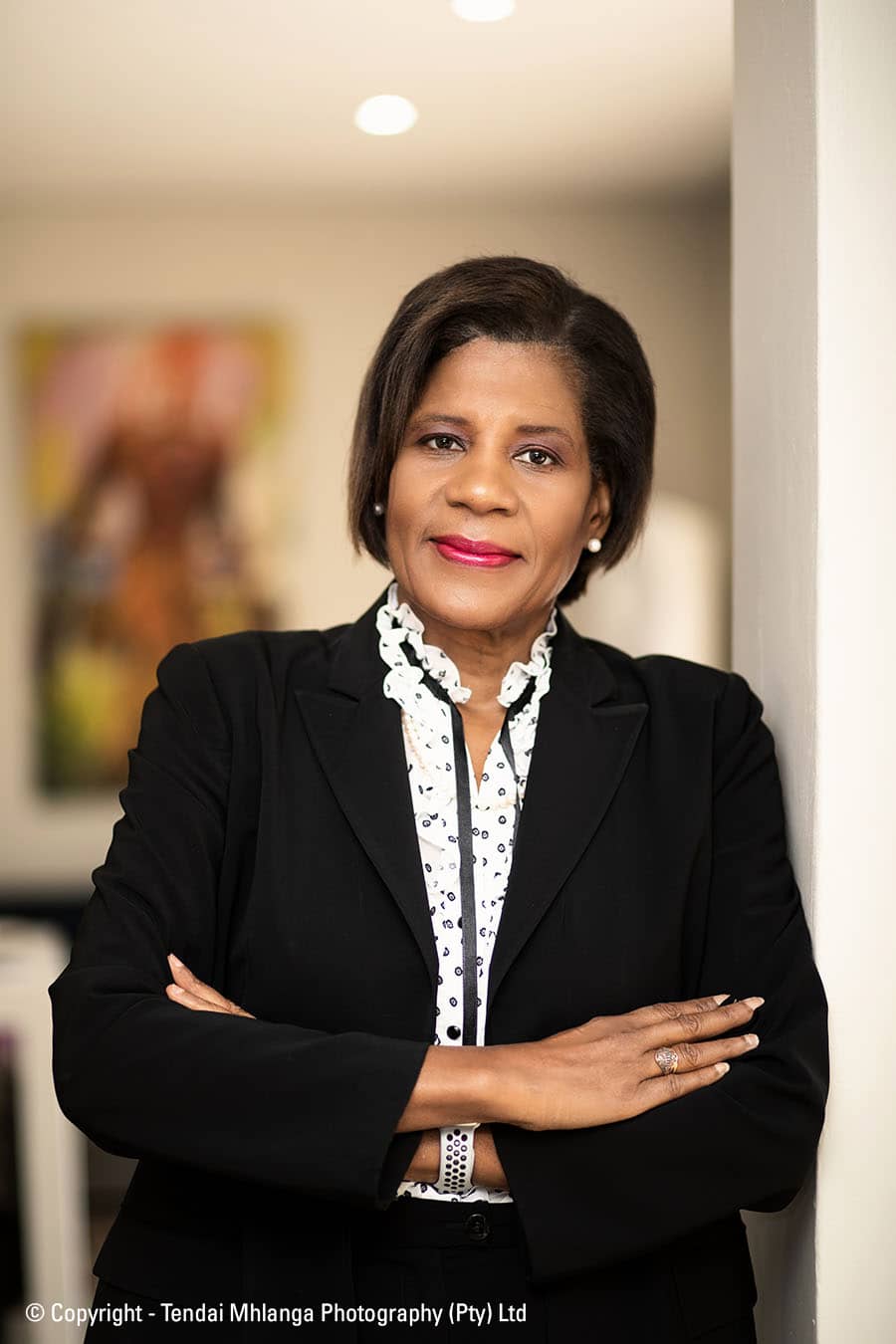
Some critics accuse the World Bank of being an ivory tower with staff who are out of touch with the reality on the ground, thus generating bureaucracy instead of alleviating poverty. What are your thoughts on this?
At one point, this perception was probably somewhat justified. However, from 1995 to 2005, we were lucky to have had a visionary President, James Wolfensohn. The transformative initiatives he implemented earned him the nickname of “Renaissance Banker”. He realised the importance of a diverse workforce, recruiting local talent, and decentralising decision-making power. The institution is now much more open, attentive to the needs of its clients and agile in its response.
When I joined the World Bank at the age of 35, my early experience in the field had already shaped my commitment to development. Our direct clients are the governments of the respective countries we are serving, although I am fully aware of the importance of civil society involvement as the people of a country are the ultimate beneficiaries of our work.
When I assumed my current position in South Africa, I vowed to visit a township every month and I always find this reality check particularly enlightening. Just yesterday I was chairing a meeting on the design of an education project in Eswatini (formerly called Swaziland), and I insisted that we engage with the beneficiaries, because ultimately, they are the ones who can judge the effectiveness of a programme.
Has being a woman meant you have faced any extra challenges?
When I joined the World Bank, being a woman of colour from France was not necessarily an asset. The discrimination I suffered was mainly insidious. Sometimes, it resulted in not getting the positions I aspired to, explained away by deceptive reasons. This simply motivated me to redouble my efforts and strive to remain professional and dignified at all times, including during difficult handovers. And, just like when I was a girl, I kept my gaze laser-focused on the horizon. This is another piece of advice that I share with young people: resilience, courage, and convictions do pay off in the long run.
However, I also acknowledge that the institution has made a lot of progress. President Wolfensohn was proactive in opening the Bank to a more diverse staff, women, people from minority groups, which unleashed a lot of new energy. And, like many organisations, it has had to face challenges around racism. In the aftermath of the George Floyd protests, a taskforce was set up to analyse how accusations of racism are and could be better dealt with internally.
What brings purpose and meaning to your everyday life?
I cannot imagine life without being involved in social responsibility initiatives. I have led social initiatives in each of my positions. In DR Congo, I funded projects to help get children off the streets and provide vocational rehabilitation for young people with disabilities. I organised similar projects in Nigeria focusing on war widows. In Morocco, I led a project supporting migrants arriving from sub-Saharan Africa. I have always been active on a personal level as well. I set up a foundation to help AIDS orphans and we were active in four countries. I have been sponsoring two young Nigerian orphans. In South Africa, during the immediate Covid-19 period, I campaigned for funding to feed hundreds of vulnerable migrants whom at that stage were not supported by the government’s social safety nets.
For me, there’s nothing more rewarding than empowering people who have a strong potential but are challenged because of difficult circumstances such as conflict or lack of economic opportunities.
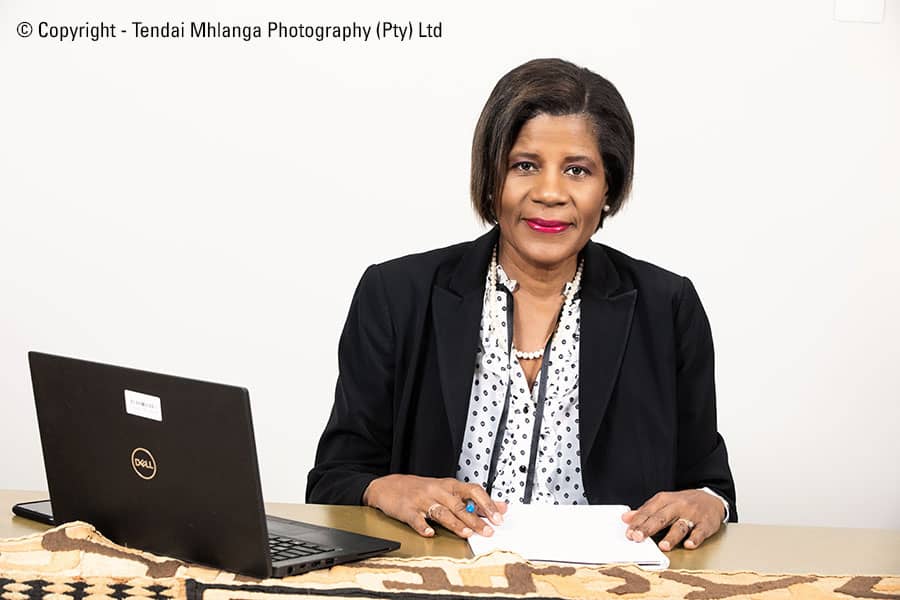
I have read that you are a bit of a workaholic; do you confirm this?
Yes, I believe it is true! I can still see myself at my desk, for yet another late evening at the World Bank headquarters in DC. The night guards were patrolling the huge offices and one stopped by my desk to inform me: “Mam’! Not sure you’re aware of this but you are the only employee left in the building!” It was Christmas Eve. I was leaving the following day for Martinique to be with my family, and being the conscientious woman that I am, I wanted to go through all my files and tie up any loose ends before I left. However, I was so embarrassed that I packed up and went home immediately!
This determination goes back to my childhood. I guess it is a continuous quest for excellence and to some extent I can’t help it. But that doesn’t mean I don’t have any other interests! I know when I need to take a breather and process my thoughts. I love being surrounded by young people. I like sports and I am currently working on a new challenge, moving from tennis to golf, which will be gentler on my knees. In addition, I try to make the most of my international business trips to understand other cultures better.
What strategies do you think Audencia should pursue to continue to catalyse positive change?
The international outlook, which has been Audencia’s signature for decades, is a fantastic asset that should be cultivated. Secondly, I like that the school has opened over time. I am a pure product of the French public school system. My parents made it a point to find ways for me to access quality education. The school should focus further on recruiting students from more varied social backgrounds because diversity drives innovation. This is precisely the reason why I contribute to the Audencia Foundation. Thirdly, the school should continue to strive for academic excellence because this is the best arm against prejudice.
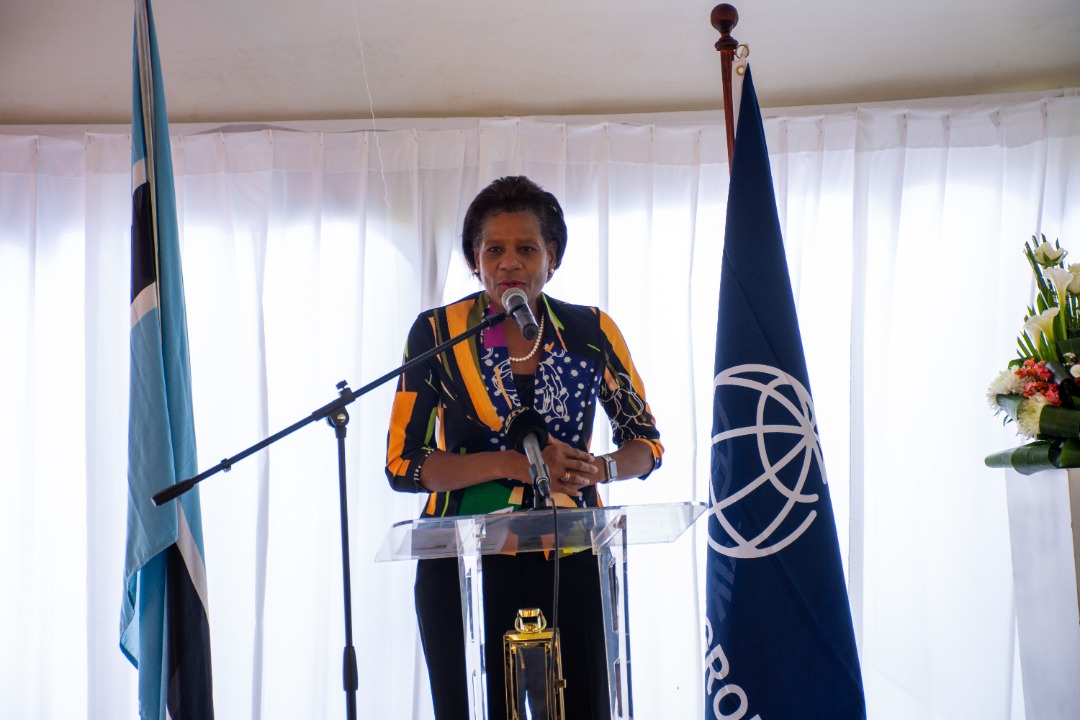
Is there anything that you are particularly looking forward to in the coming weeks?
Yes, there is! Here in South Africa, we have a long weekend coming up for the celebration of Heritage Day. I will be heading to a wellness centre I go to when I need to take some time for myself. It’s on a farm, an hour from Pretoria. I will go on hiking at sunset, again at dawn, and enjoy some hydrotherapy in between. I am going on my own and am unlikely to bump into anyone from work!
It is tempting nowadays to get bogged down with what seems like an insurmountable accumulation of crises. Do you sometimes despair about the future of humanity?
I am an unwavering optimist. Look at the journey that humanity has taken: it has always been fraught with crises, but we have always recovered. To take the Covid-19 crisis example; I am convinced that it will spark some profoundly positive changes, one of which is our ability to reclaim something valuable which is time for ourselves, and to be better prepared to face such global health crises. When you step back to analyse long-term trends, you note that civilisation has made tremendous progress. In recent history, when African countries obtained independence, only 20% of young people had access to university, but today, there are many outstanding scholars in key positions all over the world!
I have one major concern though, and that is the climate crisis. I see its devastating effects first-hand, with longer, more frequent droughts and heavier rainfall that destroy crops. This is going to be the issue of our time in the years to come: how do we rethink the balance on Earth so there is space for everyone, less inequality, for the younger generation to thrive and remain hopeful.
Finally, young people make me optimistic. I get this from my mother whose motto has always been “The only secret to remaining young is to surround yourself with young people.” I believe that the only way forward is to involve young people in decision-making processes. Therefore, in each of my roles as director, I have established a youth platform. Every time I meet young people, I am amazed by their resourcefulness for innovation, confirming my hopes for a better, albeit a different, future.

